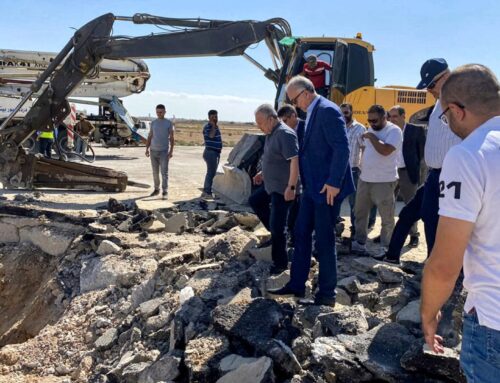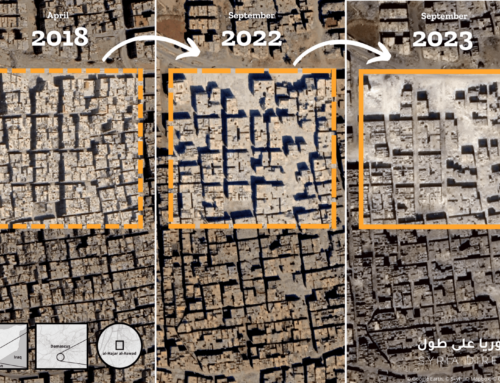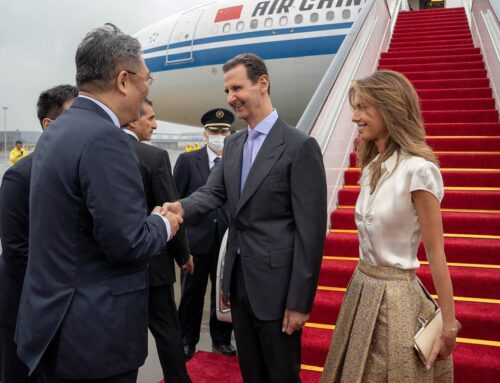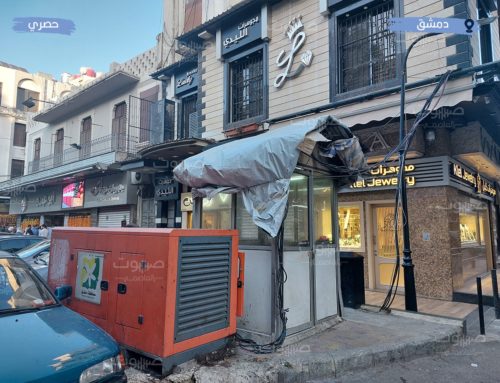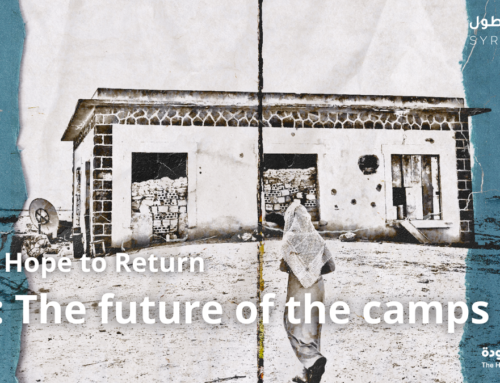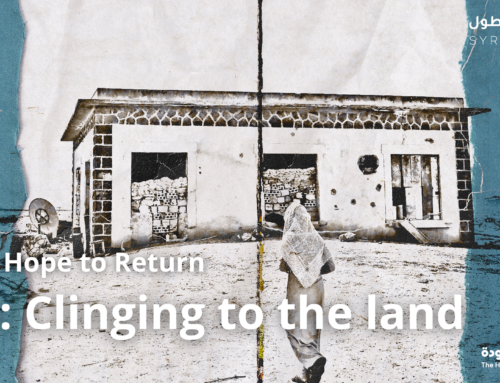Madaya gets first aid in five months, residents worry it isn’t enough
Madaya children gathering around an aid truck on Sunday. Photo […]
26 September 2016

Humanitarian aid entered the regime-blockaded Outer Damascus town of Madaya on Sunday for the first time in five months, while a spokesman from the local council told Syria Direct on Monday that what they received was “limited and not specific to our needs.”
A total of 49 Syrian Arab Red Crescent (SARC) trucks, in coordination with the International Committee of the Red Cross (ICRC) and the United Nations (UN), entered Madaya on Sunday evening carrying flour, food packages, medical supplies and hygiene kits for the rebel-held town’s 40,000 residents. Four trucks of aid entered neighboring Zabadani.
Syrian state media agency SANA and pro-regime media reported that 17 aid trucks concurrently delivered aid to 20,000 residents in the Idlib towns of Fuaa and Kafariya on Sunday, which are besieged by the rebel Victory Army in northern Syria.
The towns that received aid on Sunday fall under last September’s ‘Four Towns Agreement,’ between rebels and the regime, which stipulates parallel aid deliveries for four encircled towns: Madaya and Zabadani in Outer Damascus and Fuaa and Kafariya in Idlib province.
Aid was originally due to enter last week, but was delayed after the bombing of a SARC convoy in rural Aleppo province on September 20. The attack prompted SARC and the UN to temporarily suspend operations in Syria.
In Madaya, although the UN-negotiated delivery included 8,000 food packages, the contents were “limited and not specific to our needs,” Faras al-Hussein, a spokesman for the local council told Syria Direct on Sunday.
The food packages contained legumes, bulgur, rice, sugar and oil but lacked ingredients like salt, important for residents with low blood pressure, said al-Hussein.

“We were surprised that they didn’t include supplies we need, like animal protein, salt and margarine,” said Abu Mohammed, a Madaya resident.
“Last time the food packages included tuna,” he added, referring to the last aid delivery in late April.
Some residents initially discussed rejecting the aid because “they felt like they didn’t benefit,” said al-Hussein. But they later decided to accept the packages because they didn’t want to “lose everything.”
“We’re forced to accept aid in whatever form, even if it fails to meet our basic needs, because we’re afraid of starving to death,” said resident Abu Mohammed.
Amidst a reported meningitis outbreak in Madaya and an overburdened, understaffed health infrastructure, medical aid did enter on Sunday’s aid delivery.
Spokesman al-Hussein says that certain supplies the local council previously requested from the UN, however, did not arrive.
“We’re in dire need of vaccines and medicine for the wounded. We need painkillers, IVs, anti-inflammatory medicine and fever reducers,” said the council spokesman.
Instead, doctors received what al-Hussein described as non-essential medical supplies: medical tape, Cetamol pills for minor colds and syringes.
Two incubators for treating premature babies were included in the delivery, but al-Hussein says the town does not have the fuel necessary to operate them.
“We’ve asked the UN before to deliver incubators with fuel,” said al-Hussein, not elaborating on when the request was made. “The medical office can’t benefit from incubators without fuel to run them.”
For some Madaya residents, imperfect aid is better than nothing.
“After the UN suspended its aid work, we were very scared that we wouldn’t get aid again,” Abu Mohammad told Syria Direct.
Residents “remember how people died of hunger,” he said. “Aid means everything to us.”


